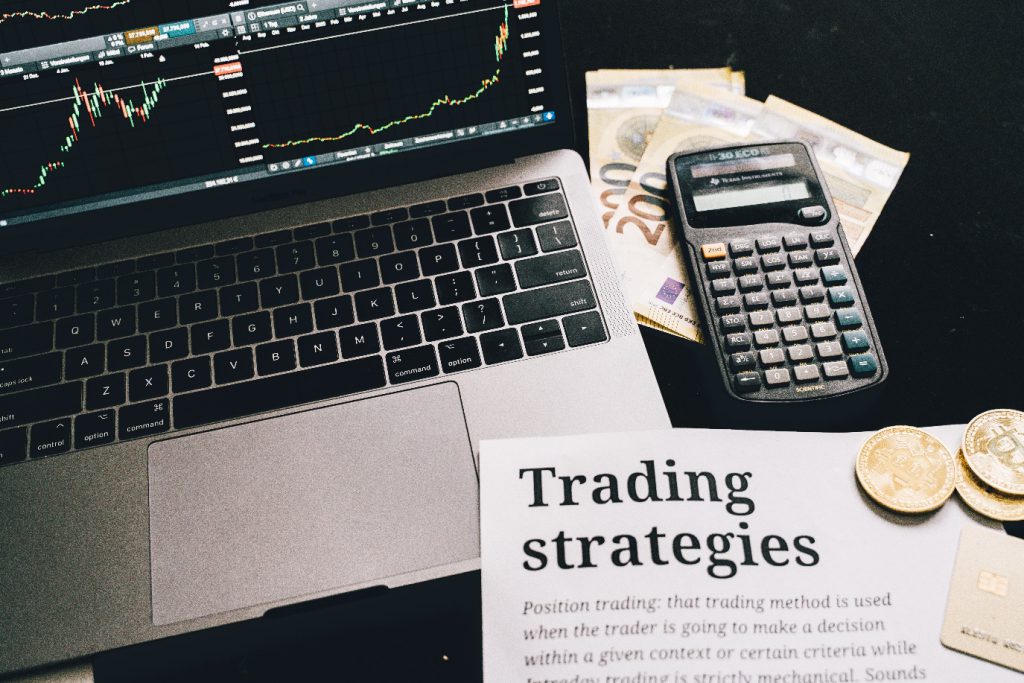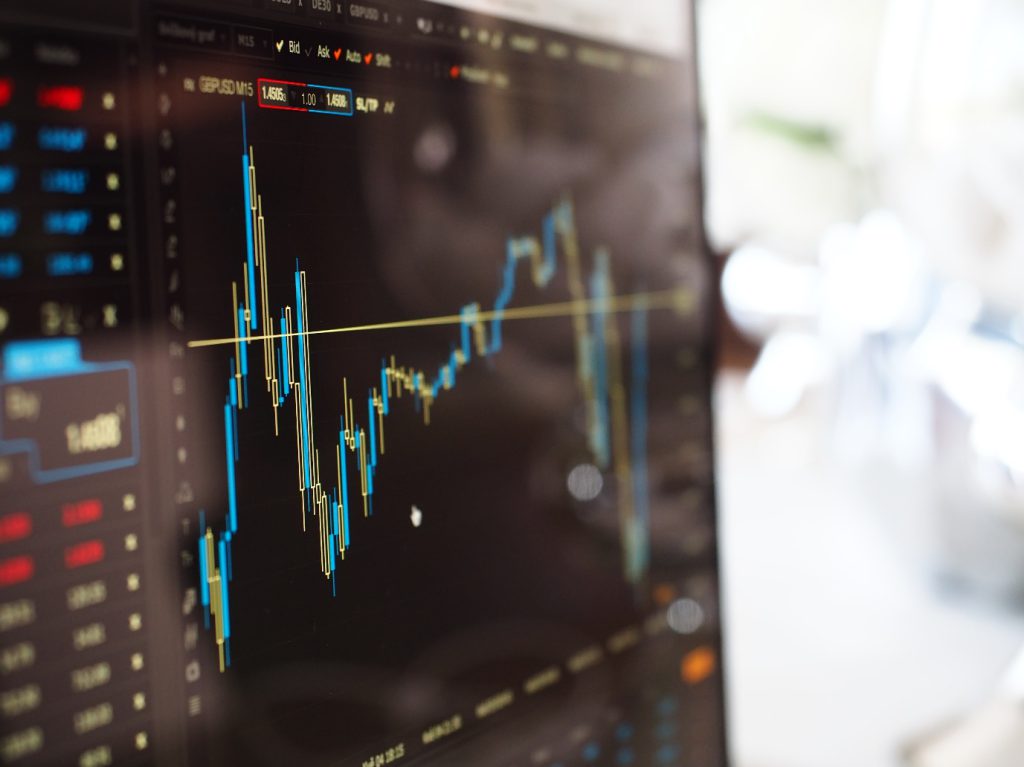1. Introduction: The Importance of Avoiding Mistakes in Forex Trading
Forex trading, with its potential for significant profits, has garnered immense popularity among traders worldwide. However, navigating the forex market successfully requires more than just luck; it demands a strategic approach and the ability to steer clear of common pitfalls. In this article, we will explore the crucial topic of minimizing losses in forex trading by highlighting the mistakes that traders should steer clear of. By understanding and avoiding these pitfalls, traders can enhance their chances of long-term success in the dynamic forex market. Let’s delve into the key factors that can help traders minimize losses and maintain a profitable trading journey.
1. Introduction: The Importance of Avoiding Mistakes in Forex Trading
Forex trading is an exciting and potentially profitable venture, but it is not without its fair share of risks. One of the greatest challenges for traders is minimizing losses and maximizing gains. As the saying goes, “prevention is better than cure,” and this applies perfectly to forex trading. By avoiding common mistakes, you can safeguard your trading capital and improve your chances of success. In this article, we will explore some key mistakes to avoid and tips for minimizing losses in forex trading. So let’s dive in and learn how to navigate the forex market with confidence!
2. Lack of Proper Education and Knowledge
Knowledge is power, especially in the world of forex trading. Many traders falter because they jump into trading without fully understanding the fundamentals. It’s like trying to build a house without knowing how to use a hammer. Here are two common knowledge-related mistakes to watch out for:
2.1 Insufficient Understanding of Basic Forex Concepts
Before starting your forex trading journey, it’s crucial to grasp the basic concepts that drive the market. This includes understanding currency pairs, pips, bid/ask prices, and leverage. Without a solid foundation, you’ll be like a ship without a compass, susceptible to making costly mistakes.
2.2 Failure to Stay Updated with Market Trends and News
The forex market is dynamic and influenced by a range of factors, including economic news, geopolitical events, and global trends. Failing to keep yourself informed can lead to missed opportunities or ill-timed trades. Make it a habit to stay updated with market trends, read financial news, and follow reputable sources. This knowledge will enable you to make more informed trading decisions.
3. Emotional Trading and Lack of Discipline
Emotions and discipline play a significant role in forex trading. Let’s explore two pitfalls in this arena:
3.1 Influence of Fear and Greed on Trading Decisions
Fear and greed are the twin monsters of the trading world. When fear takes over, it can lead to hesitations, missed opportunities, or irrational decision-making. On the other hand, greed can tempt you to take unnecessary risks or hold on to losing trades for too long. Managing these emotions is key to avoiding costly mistakes. Stick to your trading plan, set realistic goals, and avoid getting caught up in the emotional rollercoaster.
3.2 Impulsive Trading Without a Well-Defined Strategy
Trading impulsively, without a clear strategy, is akin to driving blindfolded. It’s essential to have a well-defined trading plan that outlines your entry and exit points, risk tolerance, and overall trading strategy. Without a plan, you’re more likely to make impulsive decisions based on fleeting market movements or tips from others. Remember, successful trading requires a methodical approach rather than relying on luck or gut feelings.
4. Ignoring Risk Management Strategies
Risk management is the compass that guides traders through the choppy waters of the forex market. Let’s explore two vital aspects of risk management:
4.1 Importance of Setting Realistic Risk-Reward Ratios
Setting realistic risk-reward ratios is essential for long-term success. It involves assessing the potential reward of a trade in relation to the risk taken. As a general rule, aim for a minimum risk-reward ratio of 1:2 or higher. This means that for every dollar at risk, you should have the potential to make at least two dollars in profit. By maintaining favorable risk-reward ratios, you can withstand losses and ensure that your winners outweigh your losers.
4.2 Neglecting to Use Proper Position Sizing Techniques
Proper position sizing is a crucial aspect of risk management. It involves determining the appropriate amount of capital to allocate to each trade based on your risk tolerance and account size. Neglecting position sizing can lead to overexposure or underutilization of your trading capital. By employing position sizing techniques such as setting stop-loss orders and using a percentage-based approach, you can protect your capital and limit potential losses.
In conclusion, avoiding common forex trading mistakes is vital to protect your capital and improve your chances of success. By educating yourself, managing emotions, and implementing proper risk management techniques, you can navigate the forex market with confidence. Remember, trading is a journey, and learning from mistakes is part of the process. So stay disciplined, stay informed, and may your trading endeavors be filled with profitable opportunities!
5. Overtrading and Impatience
5.1 Falling into the Trap of Frequent Trading
Picture this: you’re sitting at your computer, eyes glued to the flashing numbers on your forex trading platform. Every minute feels like an eternity, and you can’t resist the urge to make trades left and right. You’ve fallen into the trap of overtrading.
Overtrading is like binge-watching your favorite TV series. You start with one episode, and suddenly you’ve gone through an entire season without even realizing it. In forex trading, it’s easy to get caught up in the excitement and make trades without a solid strategy. But just like devouring a whole season in one night may leave you feeling empty and regretful, overtrading can lead to financial losses and regret.
5.2 Understanding the Value of Patience in Forex Trading
Patience is a virtue, they say. And in forex trading, it’s more than just a cliché—it’s a fundamental principle to avoid costly mistakes. Impatience is the root of many trading disasters. Acting on impulse without a well-thought-out plan can quickly turn your trading dreams into nightmares.
Instead of obsessing over every little price movement, take a step back and embrace the beauty of patience. Wait for the right opportunities, stick to your strategy, and resist the temptation to make impulsive trades. Remember, Rome wasn’t built in a day, and neither are successful trades. Take your time, analyze the market, and let patience guide your trading decisions.
6. Failure to Use Stop Loss Orders
6.1 Significance of Stop Loss Orders in Minimizing Losses
Imagine going on a roller coaster ride without a safety harness. It’s a heart-stopping, adrenaline-pumping experience, but the risk of injury is astronomical. Similarly, trading without stop loss orders is like riding the forex market without any protection.
Stop loss orders are your safety harness in the world of forex trading. They act as a safety net, automatically closing your trade if the market moves against you beyond a certain point. By setting a predetermined level at which you cut your losses, you can protect your capital and minimize potential damage.
6.2 Determining Appropriate Stop Loss Levels
Setting stop loss levels is a delicate art, much like finding the perfect balance between sweet and salty in your favorite snack. It requires careful consideration and a pinch of common sense. A stop loss level that’s too tight may trigger an unnecessary exit, while one that’s too loose might expose you to larger losses.
To determine appropriate stop loss levels, analyze the market conditions, your risk tolerance, and the specific trade setup. Avoid setting arbitrary stop loss levels based on emotions or random numbers. Instead, let logic and a well-defined strategy be your guides. Remember, a well-placed stop loss order can protect you from heartache and financial pain.
7. Following False Signals and Ignoring Fundamental Analysis
7.1 Differentiating Between Reliable and False Signals
In the vast ocean of information and signals available to forex traders, it’s easy to get lost in a sea of false promises. Following false signals is like chasing after a mirage in the desert—it’s a journey that leads to disappointment and dehydration (in this case, financial dehydration).
To differentiate between reliable and false signals, develop a keen sense of skepticism. Don’t blindly trust every indicator, tip, or guru that comes your way. Instead, analyze the credibility of the source, cross-reference with other indicators, and consider market conditions. Remember, there are no shortcuts to success in forex trading. Stay vigilant and rely on your own analysis to avoid falling into the trap of false signals.
7.2 Recognizing the Importance of Fundamental Analysis in Forex Trading
Fundamental analysis is like the foundation of a sturdy house—it provides stability and helps you make informed trading decisions. Ignoring the importance of fundamental analysis is like building a house on quicksand—it may seem fine initially, but it will eventually crumble under pressure.
While technical analysis focuses on price patterns and indicators, fundamental analysis looks at economic indicators, news events, and geopolitical factors that impact currency values. It helps you understand the bigger picture and make trades based on solid reasoning rather than pure speculation. So don’t neglect the power of fundamental analysis. It’s a vital tool in your forex trading toolbox.
8. Conclusion: Key Takeaways for Minimizing Losses in Forex Trading
In the fast-paced world of forex trading, avoiding common mistakes can mean the difference between financial success and failure. By understanding the dangers of overtrading and impatience, utilizing stop loss orders effectively, differentiating between reliable and false signals, and recognizing the importance of fundamental analysis, you can minimize losses and increase your chances of profitable trades.
Remember, forex trading is a marathon, not a sprint. It requires discipline, patience, and a clear-headed approach. So stay focused, continue learning, and embrace the adventure of the forex market with a dash of wit and a sprinkle of personality. Happy trading!
8. Conclusion: Key Takeaways for Minimizing Losses in Forex Trading
In conclusion, forex trading can be a lucrative endeavor if approached with caution, discipline, and a strong understanding of risk management. By avoiding common mistakes such as insufficient education, emotional trading, and neglecting proper risk management strategies, traders can significantly minimize their losses and increase their chances of success. Additionally, incorporating stop loss orders, following reliable signals, and staying updated with fundamental analysis can further enhance trading outcomes. Remember, forex trading is a journey that requires continuous learning, adaptation, and self-control. By implementing the tips outlined in this article, traders can navigate the forex market with greater confidence, minimize losses, and strive for consistent profitability.
FAQ
1. What are some common forex trading mistakes that can lead to losses?
Common forex trading mistakes that can lead to losses include lack of proper education and knowledge, emotional trading driven by fear or greed, ignoring risk management strategies, overtrading, failure to use stop loss orders, and following false signals while neglecting fundamental analysis.
2. How can I avoid emotional trading and maintain discipline in forex trading?
To avoid emotional trading and maintain discipline in forex trading, it is important to develop a well-defined trading plan and strategy. Stick to your plan and avoid impulsive decisions driven by emotions. Practice patience and avoid overtrading. Implement risk management techniques, such as setting realistic risk-reward ratios and using proper position sizing. Additionally, consider using automated trading systems to remove emotional bias from your trading decisions.
3. Why are stop loss orders crucial in minimizing losses in forex trading?
Stop loss orders are crucial in minimizing losses in forex trading as they help limit potential downside by automatically closing a trade when the market reaches a predetermined price level. By setting appropriate stop loss levels, traders can protect their capital and prevent significant losses in case the market moves against their position. Stop loss orders also provide peace of mind and eliminate the need for constant monitoring of trades.
4. How can fundamental analysis and following reliable signals help in minimizing losses?
Fundamental analysis involves evaluating economic indicators, news events, and geopolitical factors to understand the underlying value of currencies. By incorporating fundamental analysis into your trading strategy, you can make informed trading decisions and avoid relying solely on technical analysis. Additionally, following reliable signals from trusted sources can assist in identifying potential trading opportunities with higher probabilities of success, reducing the risk of entering trades based on false signals.

AdHang.com is the No.1 agency for digital marketing in Nigeria and the first Internet public enlightenment agency in Africa. AdHang has everything needed to achieve your digital marketing objectives and goals. From strategic digital marketing, a tactical approach to employing advanced digital marketing tools and technologies, using seasoned marketers with decades of marketing communications experience.









Comments